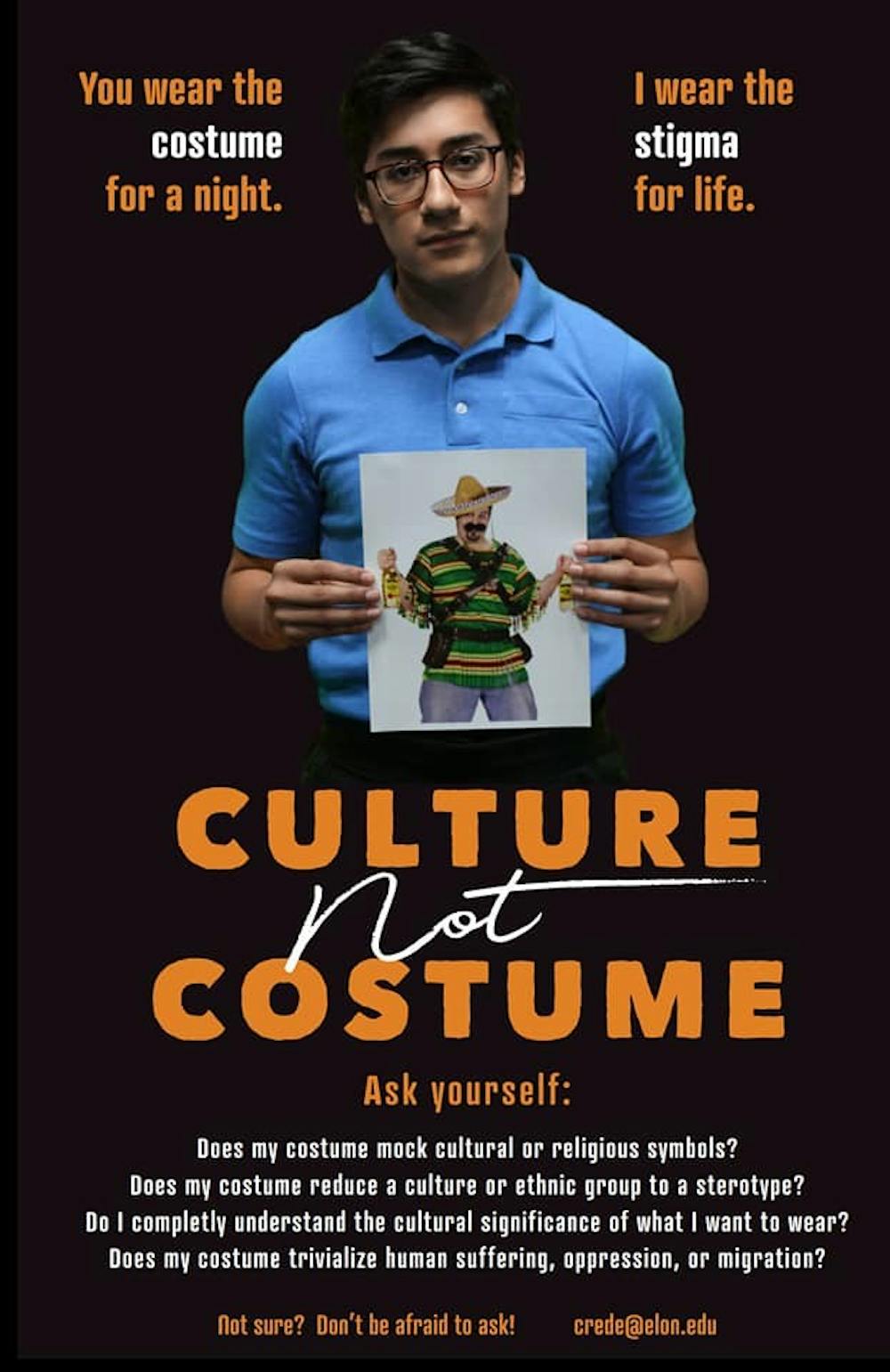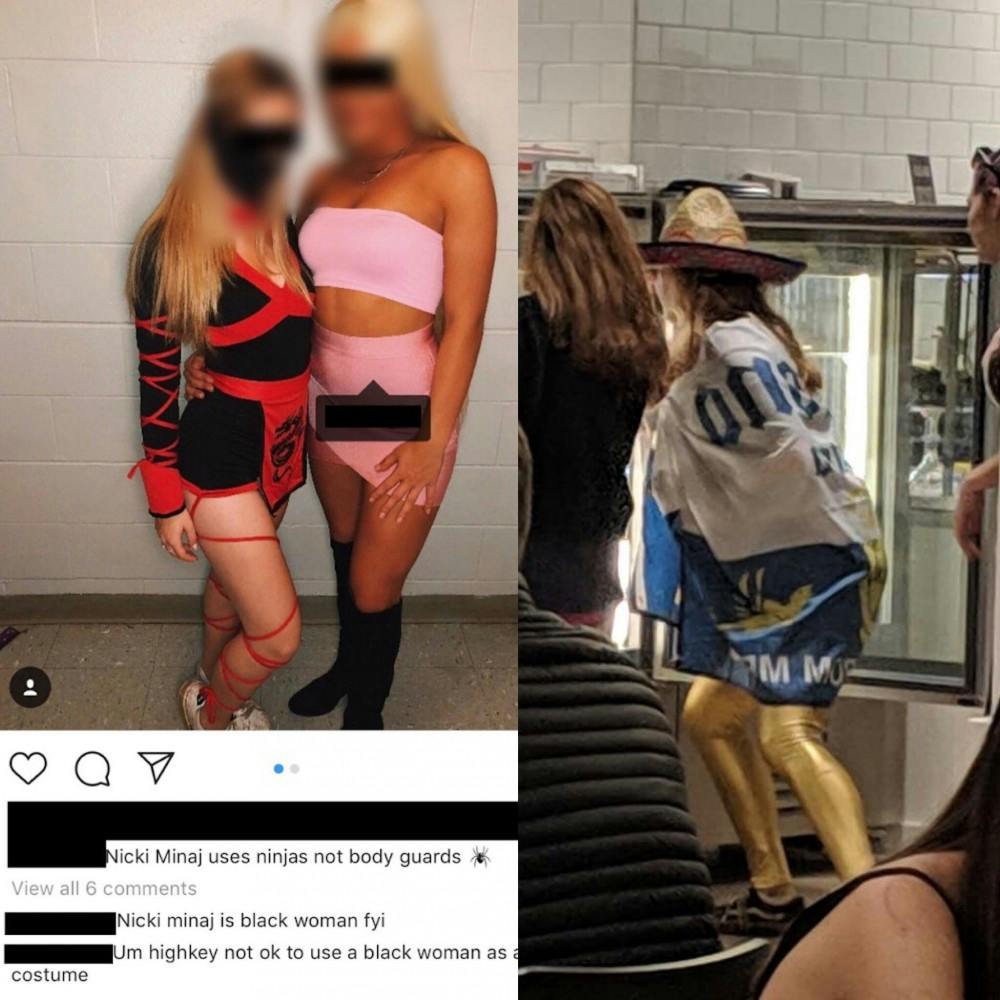Editorials offer the opinion of the editorial board. Staff editorials and other opinions content are separate from news coverage.
The warnings were everywhere, ranging from a national conversation on black face to signs posted around campus by the Elon University Center for Race, Ethnicity and Diversity Education.
But photos obtained by Elon News Network show a number of Elon students chose to wear racially insensitive costumes during Halloween weekend regardless of the warnings. Both photos show white students dressing up as members of other races. One student draped herself in Corona flag — a popular Mexican beer — and wore a sombrero on her head. In another photo, a white female student was shown dressed as Nicki Minaj, an African-American hip hop artist.
It may be true that the students dressed in these costumes without any ill will. After all, these costumes are deeply connected to pop culture, and Halloween is a chance to express admiration, humor or fear.

But that doesn’t justify the negative impact of wearing these costumes, which many Elon students in marginalized communities interpreted as offensive. Those minority students — which in total encompasses only 17 percent of Elon’s population — don’t have the option to take off their culture at the end of a night, which often means shouldering centuries of injustice, prejudice and microaggressions.
Megyn Kelly’s comments about black face last week led to the cancelation of her multimillion dollar NBC television show. But some of the nearly 5,000 white students on this campus can apparently wear what they believe is cute or festive without consequence or repercussion.

It’d be an entirely different conversation if this was a one-time occurrence. But over the past two years, it seems that similar incidents have happened every semester — ranging from racial slurs, to epithets painted on a rock decorated by a historically black sorority, to entire greek organizations hosting parties encouraging culturally disrespectful costumes.
In a 2014 survey by the Elon Presidential Task Force on Black Student, Faculty and Staff experiences, 78.7 percent of black students polled said they felt unsafe on campus. About 40 percent of non-black students polled said they feel Elon is a positive, accepting community.
Every year, Elon’s institutional priorities state that one of its goals is to increase and support a diverse student body, faculty and staff. The fact that President Emeritus Leo Lambert orchestrated this study, along with President Connie Book’s vocal desire to make Elon more accessible to minority students demonstrates that the intention is there.
But those aspirations will never happen if students fail to do their part and there are no reprimands for the insensitive behavior of students. Adding Odyssey scholarships won't be enough to fulfill Lambert or Book's goals of an inclusive campus. Requiring all freshmen to take diversity training prior to coming to Elon, or suspending students immediately for portraying this type of irresponsible behavior, could be a start.
The issue of diversity at Elon — as with any predominantly white institution — is layered, and we could write entire books on what is wrong and how to fix it. But, in this particular instance, it is our hope that those who see a problematic costume online or in person would take initiative to correct this problem.
Yes, college is a place to have fun. But it is important to think critically about the choices you make, as it could have a lasting effect on those around you. Choose a fun costume that isn’t insensitive. Speak out if you see a friend thinking about wearing something that may be offensive. Incidents like these can easily be avoided. And because there was a vast amount of waning beforehand, ignorance can no longer be an excuse.


